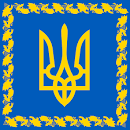The press release issued by the President of Ukraine on 14 May 2022.
The European Union’s embargo on Russian oil imports must take effect immediately, as Ukraine cannot wait another six months while Russia continues killing our citizens. This was stated by Adviser to the President of Ukraine Oleg Ustenko in an interview with the international media organization Project Syndicate.
He noted that Ukraine commends the proposal of the European Commission to stop the import of Russian crude oil, but believes that postponing the implementation of this decision for six months is unacceptable. After all, the Russian Federation uses the revenues from the sale of energy to finance its military machine.
“Russia is receiving $1 billion per day for its energy exports. You can imagine how many missiles, weapons, and bombs they can buy in the six months before the embargo is fully implemented. Our position is straightforward. We want this embargo to go into effect at once. We don’t have an extra six months to wait while Russia continues to kill our citizens. Under the circumstances, we believe that Europe must act immediately,” the Adviser to the President emphasized.
According to him, after the introduction of a full embargo on Russian oil in the short term, world oil prices will rise, which could cause losses for Europe. But in the medium term, prices will adjust, as oil producing countries will increase production not only in the Middle East, but also in Africa, and this should lower prices.
“Second, the Chinese economy is slowing, which means it will consume less oil. That, too, will move markets toward a new equilibrium and reduce prices,” Oleg Ustenko said.
In the long-term perspective, it would be a win-win situation for the whole world, because it is going to be more predictable, stable and secure. Hence, business income will grow.
To mitigate the short-term negative effects of the embargo, the Adviser to the President of Ukraine proposes, for example, to limit the price of Russian oil for a transitional period.
“The marginal cost of production for Russian oil is around $10 per barrel. Russia should be allowed to keep $10 per barrel sold, and any amount above that should be seized through sanctions. This money should go into a special fund for rebuilding Ukraine,” he said.
As for natural gas, here, according to Oleg Ustenko, Europe can continue to buy Russian gas, but the proceeds should go into an escrow account, which is administered by a special board.
“With the board’s approval, some of the funds could go to Russia for critical imports such as pharmaceuticals. This would leave Russia with some incentive to continue selling natural gas to Europe, even in the face of the new sanctions. And the board could approve greater disbursements to Russia if it withdraws from Ukraine and stops the war,” the Adviser to the President noted.
According to him, this escrow account should be administered by a board formed by Ukraine’s allies – the United States and the European Union or the European Commission. Our state must also be represented on the board.
In addition, as Oleg Ustenko noted, along with tightening restrictions on oil and natural gas imports, the Ukrainian side would welcome the imposition of new sanctions on the individuals in power in Russia.
“There have been some sanctions for top-level individuals, but not yet for their family members. All members of Russian President Vladimir Putin’s party, United Russia, should be cut off from Europe. They and their family members are still spending their time in Europe, rather than enduring life in Russia. They should be stopped from doing that, so that they have a greater incentive to put pressure on Putin to end the war,” the Adviser to the President emphasized.
He also said that any trade with Russia must be stopped. Insurance companies must be prohibited from providing coverage for ships departing from Russian ports, and all Russian banks must be excluded from the international payment system.
